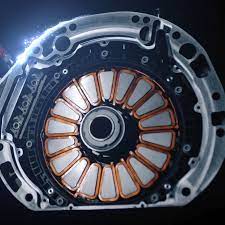
Breaking News
 "The World Is in Peril": AI Researcher Resigns and Issues Warning for Humanity
"The World Is in Peril": AI Researcher Resigns and Issues Warning for Humanity
 President Obama declares aliens are REAL as he gives inside track on Area 51
President Obama declares aliens are REAL as he gives inside track on Area 51
 Epstein survivor breaks down in tears as she recounts thinking she was 'going to die'...
Epstein survivor breaks down in tears as she recounts thinking she was 'going to die'...
 Biggest Correction Ever? Silver's Violent Smashdown, and Why the Bull Survives
Biggest Correction Ever? Silver's Violent Smashdown, and Why the Bull Survives
Top Tech News
 New Spray-on Powder Instantly Seals Life-Threatening Wounds in Battle or During Disasters
New Spray-on Powder Instantly Seals Life-Threatening Wounds in Battle or During Disasters
 AI-enhanced stethoscope excels at listening to our hearts
AI-enhanced stethoscope excels at listening to our hearts
 Flame-treated sunscreen keeps the zinc but cuts the smeary white look
Flame-treated sunscreen keeps the zinc but cuts the smeary white look
 Display hub adds three more screens powered through single USB port
Display hub adds three more screens powered through single USB port
 We Finally Know How Fast The Tesla Semi Will Charge: Very, Very Fast
We Finally Know How Fast The Tesla Semi Will Charge: Very, Very Fast
 Drone-launching underwater drone hitches a ride on ship and sub hulls
Drone-launching underwater drone hitches a ride on ship and sub hulls
 Humanoid Robots Get "Brains" As Dual-Use Fears Mount
Humanoid Robots Get "Brains" As Dual-Use Fears Mount
 SpaceX Authorized to Increase High Speed Internet Download Speeds 5X Through 2026
SpaceX Authorized to Increase High Speed Internet Download Speeds 5X Through 2026
 Space AI is the Key to the Technological Singularity
Space AI is the Key to the Technological Singularity
 Velocitor X-1 eVTOL could be beating the traffic in just a year
Velocitor X-1 eVTOL could be beating the traffic in just a year
"World's most power dense" electric motor obliterates the field

As we've seen repeatedly in the past, good things happen when the British e-machine specialist sets its sights on the record books. Hot off of showing what its motors can do inside a hunk of exotic Mercedes super-hardware, it's teasing how its next generation of motors will redefine expectations all over again. One of its prototype motors smashed the unofficial power density world record, pulling supercar levels of output from a flat, 29-pound (13.1-kg) disc package.
YASA announced this week that it achieved a massive 550 kW (738 hp) from a prototype motor that weighs a mere 13.1 kg (29 lb), equating out to an extremely impressive 42 kW/kg power density. YASA calls it an unofficial world record, noting that it believes it to be the highest power density ever recorded by an electric motor across any sector or application. It plans further testing in the coming weeks and months.
We wish someone would start an official power density record-keeping system for electric motors because it would organize what is otherwise a series of manufacturer claims. We've been tracking it ourselves in terms of the high-powered, compact motors we feature on our pages, going back at least a decade when 5 kW/kg was considered an exceptional feat multiple times ahead of the competition.
More recently, we've seen high-density figures that double or triple that 5.5 mark from Siemens, including the 15.8-kW/kg Donut Labs hollow-core automotive hub motor, 13.4-kW/kg H3X HPDM-250 aerospace motor, and 13.3-kW/kg Equipmake HPM-400 aerospace/marine motor.
YASA's 42 kW/kg blows all of them out of the water, surpassing each one more than two or threefold. YASA notes that its figure is "almost double" the previous industry high mark. The only motor we've seen publicized that surpasses that halfway point of 21 kW/kg is the 28-kW/kg D250 variant from Evolito, itself a spinoff of YASA.
What makes YASA's accomplishment even more impressive is that most of those other aforementioned high-density motors are aimed at aerospace applications, whereas Mercedes-Benz-owned YASA focuses largely on automotive applications. That's why Evolito was spun off as an aerospace brand at the time of the Mercedes acquisition.



